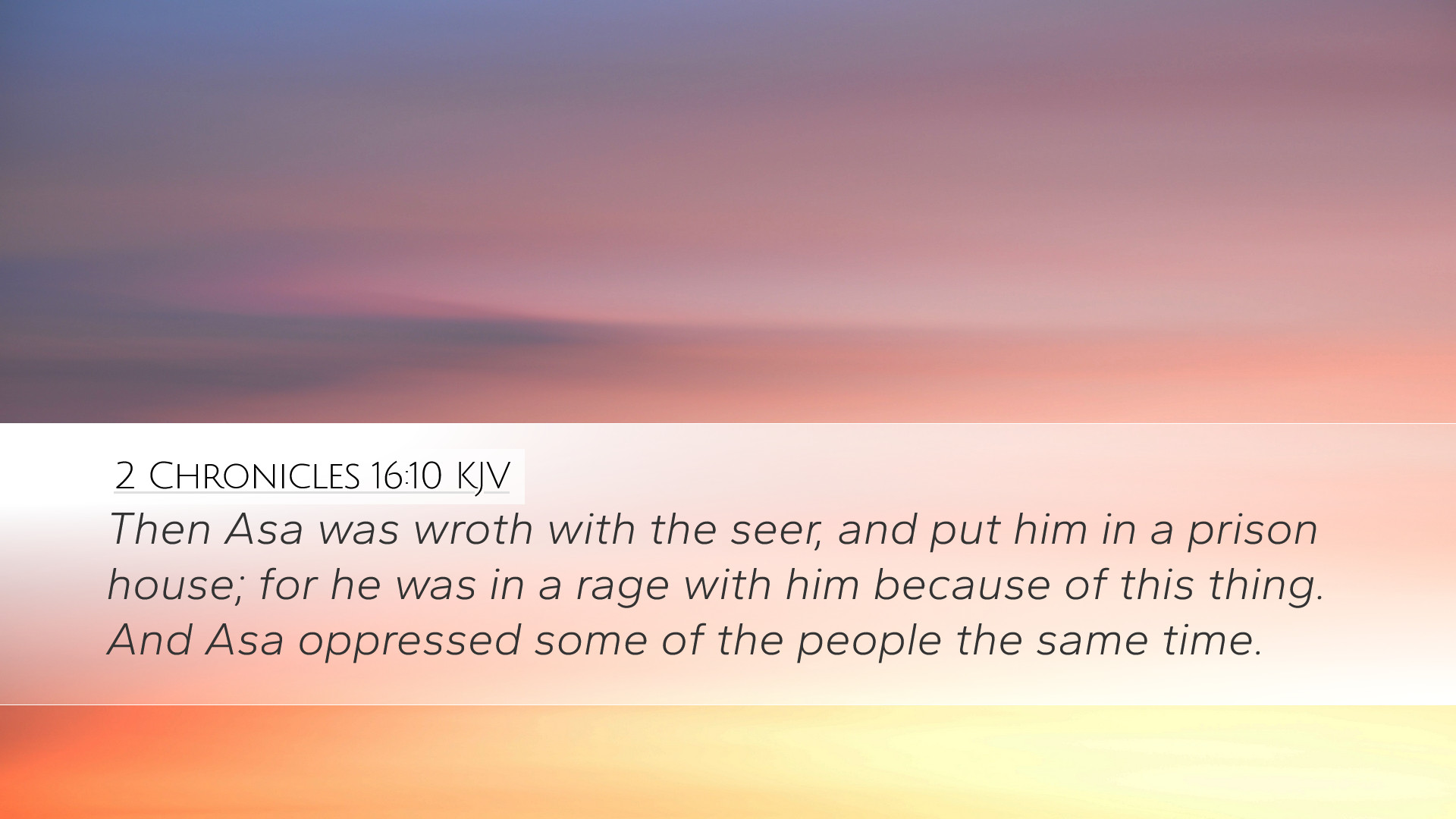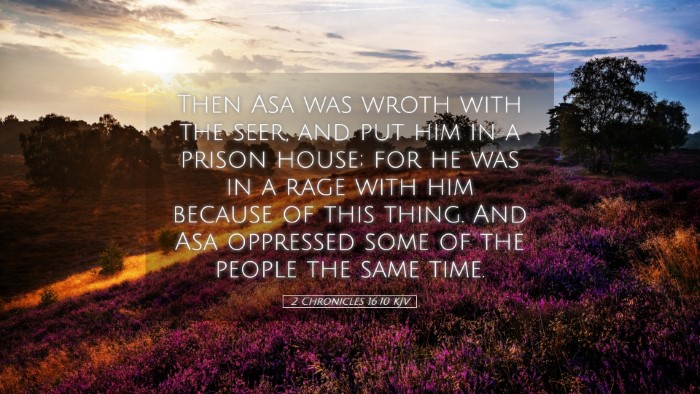Commentary on 2 Chronicles 16:10
Verse: “Then Asa was wroth with the seer, and put him in a prison house; for he was in a rage with him because of this thing. And Asa oppressed some of the people the same time.”
Introduction
This verse encapsulates a critical moment in the reign of King Asa of Judah. Having sought alliances with foreign powers rather than relying on God, Asa responds with anger towards the prophet Hanani, whose message of condemnation highlights the consequences of his actions. This passage serves as a poignant reminder of the tensions that can arise between divine truth and human pride.
Contextual Analysis
Historical Context: King Asa is a significant figure in the history of Judah, known for his initial reforms to rid the nation of idolatry and restore proper worship (2 Chronicles 14). However, in moments of crisis, he turned to diplomacy over faith, showing a decline in reliance on God (2 Chronicles 16:7).
Literary Context: This narrative situates itself in the broader themes of Chronicles, which emphasize fidelity to God and the consequences of abandoning His covenant. Asa's fall from favor is contrasted with his earlier commitment and serves as a cautionary tale for future leaders.
The Anger of Asa
Asa’s wrath toward the seer is a pivotal component of this narrative. Commentators highlight that wrath often blinds leaders to the truth. Matthew Henry notes that “anger against God's messengers is a dangerous sin; it indicates a heart not right with God.”
Implications:
- Divine Messengers: The prophet Hanani serves as a divine agent, warning Asa of his failures. Asa's fury demonstrates a rejection not just of the prophet but of God's authority.
- Response to Reproof: Albert Barnes suggests that Asa’s violent reaction can be seen as indicative of a guilty conscience—a common trait among those confronted with uncomfortable truths.
- Human Error: Asa’s decision to imprison Hanani also reveals a human tendency to silence dissent rather than to confront personal failings.
The Consequences of Asa's Actions
The latter portion of the verse states that Asa oppressed some of the people. This indicates that Asa's rage and subsequent actions had communal implications, affecting not only himself but the wider population of Judah.
Theological Insights:
- Leadership and Responsibility: Leaders are held to a high standard; Asa's oppression signifies a leadership failure to protect the innocent and uphold justice. Adam Clarke remarks that “the tyrant is he who, when smitten, smites in turn.”
- Divine Judgment: Asa’s unrepentant heart could lead to judgment not only upon himself but also upon the nation. The people's oppression reflects the broader theme of corporate responsibility and consequences in leadership.
Lessons for Today
This passage bears significant lessons for pastors, students, theologians, and scholars alike.
- Faith Over Fear: In moments of distress, leaders must remember to call upon God rather than seeking alliances with worldly powers. Asa’s error warns modern believers against relying on strategies devoid of faith.
- Acceptance of Truth: Asa’s rejection of the prophetic word teaches us the importance of embracing correction with humility. Leaders should be receptive to counsel and willing to repent.
- Impact of Leadership: The text illustrates how the moral and spiritual state of a leader can significantly impact the community. It encourages leaders to act with integrity and righteousness, serving as a conduit of God’s will among the people.
Conclusion
2 Chronicles 16:10 presents a powerful narrative about the dangers of anger and rejection of God’s will through His messengers. Asa’s story serves as a reminder that true leadership lies in humility and dependence upon God’s strength. As contemporary leaders reflect on Asa’s missteps, they are encouraged to foster a spirit of openness to divine correction and a commitment to fostering a righteous community. Thus, the lessons from Asa's life remain as relevant today as they were in ancient Judah.


